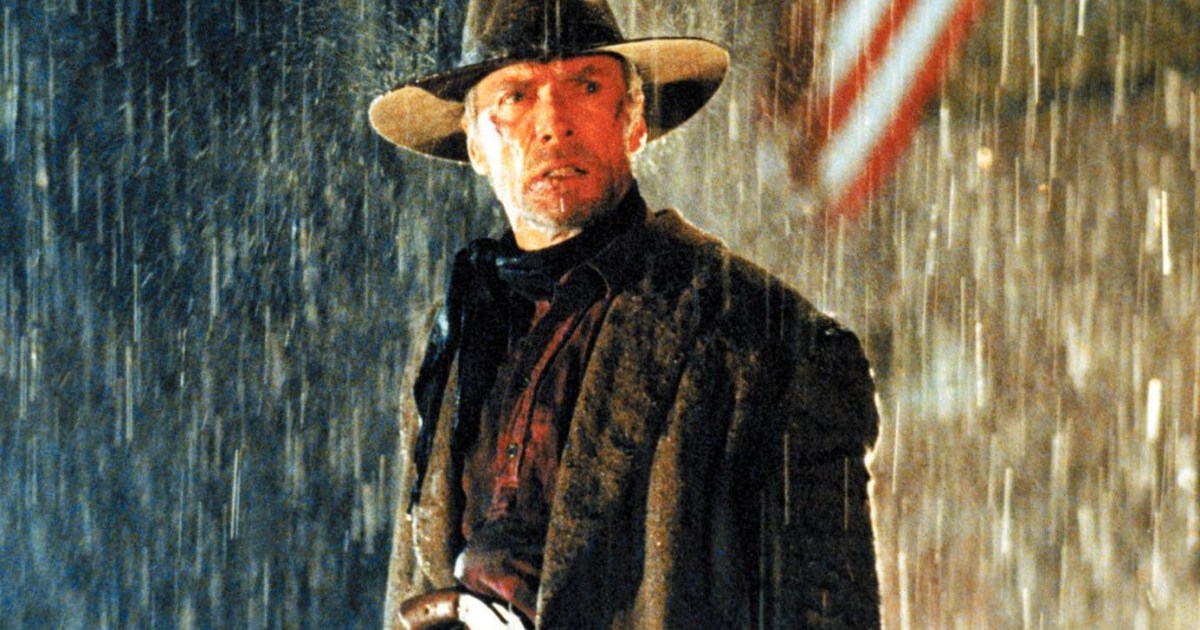The jump from acting to directing is one that countless actors have attempted over the years. Some have inevitably pulled that transition off better than others, while an even smaller number have ended up making films that are rightly seen by both cinephiles and general moviegoers alike as ranking among the greatest movies of all time. A few actors have even succeeded so profoundly as directors that they’re now remembered more for their efforts behind the camera than those in front of it.
2024 alone has seen some noteworthy directorial debuts from longtime big-screen performers like Anna Kendrick and Zoë Kravitz. Whether their films, as well as any of the other more recent additions to this niche category of movies, end up being remembered as fondly as their multi-hyphenate directors would like remains to be seen. For now, here are the 10 best movies ever directed by actors, ranked.
10. Wanda (1970)
Written and directed by Barbara Loden, Wanda follows an aimless woman drifting through the small coal mining towns of eastern Pennsylvania who unwittingly becomes the partner-in-crime to a hapless male bank robber (Michael Higgins). Loden also stars in the film as its eponymous character — marking what was at the time a rare instance of an actor writing, directing, producing, and appearing in the same movie.
While the film’s budgetary constraints are clear throughout it, Loden’s empathetic, keen eye allows Wanda to function as both a low-level crime drama and a heart-wrenching portrait of a woman with limited options who is searching for some way to ground herself in a world that would rather take advantage of her than provide any support or security. It’s the only feature film Loden ever directed, but it feels like just as fully formed of an artistic statement as any other movie on this list.
Wanda is streaming now on Max.
9. Defending Your Life (1991)

From 1979 to 1991, Albert Brooks made a run as a writer-director that ranks quietly as one of the most impressive ever achieved by an actor-filmmaker. As great as his first three films are, though, Brooks’ greatest achievement as a director remains Defending Your Life. A wacky yet tender romantic comedy, the film takes place in a version of the afterlife where a recently deceased person’s future is determined by how many of the decisions they made while they were alive were determined by fear.
Brooks stars in the film, which he also wrote and directed, as Daniel, a neurotic advertising executive whose afterlife romance with Julia (a luminous Meryl Streep) is threatened by all the fearful decisions he made on Earth. The film is just as goofy and darkly funny as any that Brooks has ever made, but at the center of it is an optimistic spirit that is as touching as it is genuinely rousing.
Defending Your Life is available to rent now on all major digital platforms.
8. Nope (2022)

Few filmmakers have rocketed to the top of the Hollywood hierarchy as quickly or as confidently as Jordan Peele. In the years since he achieved Oscar-winning success with his 2017 directorial debut Get Out, Peele has been steadily expanding the scope of his own artistic reach. As a result, his follow-up films, 2019’s Us and 2022’s Nope, have felt increasingly ambitious and harder to pin down.
That is particularly true of Nope, a visually stunning riff on a UFOs-in-the-sky sci-fi thriller that doubles as a searing, terrifying critique of humanity’s own, quenchless obsession with spectacle. Featuring two charismatic, energetically opposed lead performances by Daniel Kaluuya and Keke Palmer, Nope is as deeply indebted to sci-fi masters like Steven Spielberg and John Carpenter as it is an inimitable work that could only have been made by Peele himself. It’s a blockbuster like any other and proof that Peele is an artist who is both willing and capable of pushing himself to greater heights every time he steps behind the camera.
Nope is streaming now on Starz.
7. The Princess Bride (1987)

Rob Reiner may have first made a name for himself playing Meathead on All in the Family, but he’s most well-known now for his work as a director. That’s for good reason, too. After making his directorial debut in 1984 with one of the most beloved comedies of all time, This Is Spinal Tap, Reiner spent the next 11 years of his career directing some of the most popular and acclaimed films of the last 50 years. These include When Harry Met Sally…, A Few Good Men, Stand By Me, and arguably his greatest directorial achievement, The Princess Bride.
A modernistic, wry riff on a traditional fairy tale, The Princess Bride is one of America’s most quotable and magical fantasy films. It wouldn’t work nearly as well as it does, either, were it not for Reiner’s own, steady control of tone and his unwaveringly dry direction, which both reinforces The Princess Bride‘s comedic edge and gives its many jokes the space they need to breathe and land with maximum impact — which they do without fail.
The Princess Bride is streaming now on Disney+.
6. Little Women (2019)

Coming off the success of her directorial debut Lady Bird, Greta Gerwig chose as her follow-up Little Women, an adaptation of one of the most beloved and well-known novels of all time that had already been successfully adapted for the big and small screen several times previously. By cross-cutting its source material’s twin timelines together, though, Gerwig found a way into Little Women that made her version not only unique but also more cinematic and dynamic than any previous adaptations.
Through Saoirse Ronan’s arresting lead performance and her ensemble of fiercely rendered female characters, Gerwig also manages to create a portrait of the female experience that feels both in dialogue with Louisa May Alcott’s original novel and entirely her own. The result is the film that still feels like the purest and most exacting distillation of Gerwig’s artistic perspective to date.
Little Women is streaming now on Hulu.
5. City Lights (1931)

Charlie Chaplin may be among the most recognizable figures in film history, but it is, perhaps, a lesser-known fact outside of cinephile circles that he also directed many of his best films. While the title for his greatest work may be up for debate, few of his films capture Chaplin’s enduring magic as both a performer and storyteller more beautifully or playfully than City Lights.
The film is a light comedy about a street tramp (Chaplin) who falls in love with a blind flower girl and decides to try to use his new, lopsided friendship with a millionaire to woo her and make her life better. What ensues from there is a series of positively Chaplin-esque gags of physical comedy, followed by an ending that is among the most brilliant, simple, and moving ever devised in the history of filmmaking. Above all else, City Lights proves that Chaplin had an understanding of the visual language of cinema that has rarely ever been matched or surpassed.
City Lights is streaming now on Tubi, Max, and Amazon Prime Video.
4. A Woman Under the Influence (1974)

John Cassavetes is widely — and rightly — recognized as one of the pioneers of independent American filmmaking. Working with a reliable crew of friends and loved ones, Cassavetes starred in, wrote, and directed some of the most observant and achingly empathetic films of the 1950s, ’60s, ’70s, and ’80s. While all of his films are beloved in their own right, though, few are as revered or cast as long of a shadow as A Woman Under the Influence.
Featuring a performance for the ages by Cassavetes’ real-life wife, Gena Rowlands, the film follows Mabel, an eccentric, unstable housewife whose sometimes inexplicable behavior is met with derision and judgment by strangers, her friends, husband (Peter Falk), and family members. It is a moving, uncomfortable portrait of both incompatible romance and familial dysfunction, and Rowlands’ performance is often cited as a major inspiration for many working actresses. Cassavetes, for his part, captures it in his reliably observant, uncompromising fashion.
A Woman Under the Influence is streaming now on Max.
3. The Night of the Hunter (1955)

Charles Laughton’s The Night of the Hunter is a striking, singular piece of work. Based on a 1953 novel by Davis Grubb, it is a gothic thriller about a serial killer (Robert Mitchum) who poses as a preacher, marries an unsuspecting widow (Shelley Winters), and then tries intimidating her children into revealing where their criminal father hid the $10,000 he stole during a bank robbery. Centered around an absolutely terrifying performance by Robert Mitchum, The Night of the Hunter pushes viewers headfirst into a ghostly world of sinners, slanted walls, shadowy Southern marshes, and monsters masquerading as devout men.
It is a strange and powerful film — a slice of peculiar, pitch-black Southern Gothic fiction that entrances you and worms its way under your skin. The fact that Laughton never got to make another film is a tragic twist of fate, but the one he did is more impactful than some directors’ entire filmographies.
The Night of the Hunter is streaming now on Pluto TV.
2. Citizen Kane (1941)

In the long history of actors stepping behind the camera, Citizen Kane may be the most famous example, and there’s a good reason for that. With his first feature film, Orson Welles not only decided to pull double-duty by starring in and directing Kane but he also pushed the established limits of accepted filmmaking. Through their use of deep-focus photography, low angles, and certain camera movements, Welles and cinematographer Gregg Toland changed how filmmakers and studios believed films could move and look. Stylistically, Citizen Kane has had more of a lasting influence than almost any other film.
The movie’s style, as well as its blistering take on the corrosive nature of money, power, and ambition, have imbued it with a truly rare kind of lasting power. It’s a fearless artistic statement that Welles, thanks to the endless studio battles he faced, spent the rest of his career struggling to match. But to say that he managed to do more in Citizen Kane than most filmmakers ever had in their first film would be an understatement.
Citizen Kane is available to rent now on all major digital platforms.
1. Unforgiven (1992)

Very few actors have ever made the leap to directing as successfully as Clint Eastwood. Over the past 50 years, Eastwood has assembled a collection of directing credits so impressive that it now rivals his work as a performer. No film that he has directed sits higher on his list of achievements, either, than Unforgiven. Eastwood’s Oscar-winning masterpiece is a thrilling and elegiac Western that simultaneously mourns the death of the genre that made Eastwood a cinematic icon, examines its problematic issues, and showcases the terrifying power of the Hollywood gunslinger.
No other film on this list resonates as deeply as it does because of how it relates to its maker’s career, and no one else could have made Unforgiven with the same reverent and yet scrutinizing eye. It’s a genre-defining victory — a film that resurrects, reinvents, and says goodbye to the Old West as moviegoers had come to know it. In many ways, Unforgiven feels like the culmination of Eastwood’s entire career. It also happens to be his pinnacle as both an actor and director.
Unforgiven is streaming now on Max.
Read the full article here














